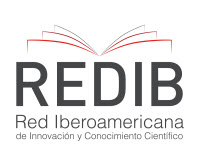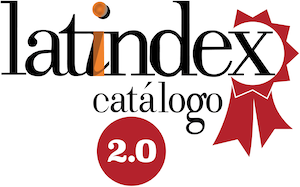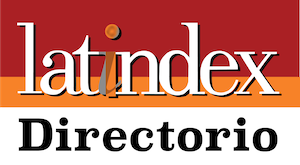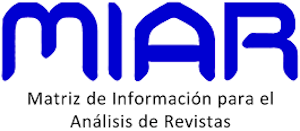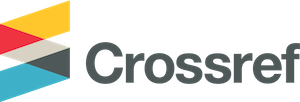Bibliometric analysis of the scientific production on neuromarketing in SCOPUS.
DOI:
https://doi.org/10.32645/13906925.1109Keywords:
Marketing, Neuromarketing, Bibliometrics, SciencemetryAbstract
The present research aims to carry out a study based on a bibliometric analysis on the scientific production of Neuromarketing in Scopus in the period 2015 to August 2021, where the evolution and impact of the subject within the scientific field was known. The theoretical framework supported the research, initially focusing on basic concepts of neuromarketing and the advancement of the term within the market. The methodology used was deductive-inductive, where from a total of results obtained, certain parameters were excluded to work with the documents of interest. The exposed results will be a well-founded basis for future research by marketing experts or different areas focused on Neuromarketing. The year and country with the greatest scientific production on the subject was identified, complementing with the journal that had the greatest number of published documents, impact factors such as quartiles and the h-index were taken into account
References
Aguilera, S., & Mavil, J. M. (2012). Neuromarketing: Herramienta de nueva generación para entender mejor al cliente. Veracruz: Universidad Veracruz.
Alvarado, L. (2013). Neuromarketing, ciencia al servicio del conocimiento. Sinergia e Innovación, 7.
Avendaño, W., Paz, L., & Rueda, G. (2015). Estímulos auditivos en prácticas de neuromarketing. Caso: Centro Comercial Unicentro, Cúcuta, Colombia. Cuadernos de Administración, 13.
Caicedo, V. (2021). Análisis bibliométrico de la investigación en Neuromarketing en la publicidad durante el año 2009 y 2020 en la base de datos Scopus. Santiago de Cali: Universidad Autónoma de Occidente.
Coca, A. (2010). Neuromarketing: las emociones y el comportamiento de compra. Perspectivas, 15. Obtenido de https://www.redalyc.org/pdf/4259/425942454003.pdf
Escorcia, T., & Poutou, R. (2009). Análisis bibliométrico de los artículos originales publicados en la revista Universitas Scientiarum (1987-2007). Universitas Scientiarum.
Kotler, P., & Armstrong, G. (2013). Fundamentos de Marketing. México: Pearson. Obtenido de https://frrq.cvg.utn.edu.ar/pluginfile.php/14584/mod_resource/content/1/Fundamentos %20del %20Marketing-Kotler.pdf
Limaymanta, C., Zulueta, H., Restrepo, C., & Álvarez, P. (2020). Análisis bibliométrico y cienciométrico de la producción científica de Perú y Ecuador desde Web of Science (2009-2018). Informacion, Cultura y Sociedad, 31-52.
Lozada, C., & Betancur, S. (2015). La gamificación en la educación superior: una revisión sistemática. Revista Ingenierías Universidad de Medellín, 98-104.
Ortega, A., Amador, B., Troyo, E., & Valdez, R. (2021). El índice h: Sobrevaloración de su uso en la estimación del impacto del quehacer científico en México. Terra Latinoamericana.
Quintero, L., & Martínez, J. (2018). Neuromarketing en la publicidad y su impacto en el consumidor del sector retail de la cíudad de Medellín (Colombia). Espacios, 8. Obtenido de https://www.revistaespacios.com/a18v39n16/a18v39n16p22.pdf
Ramos, J. (2020). Técnicas de Neuromarketing para aumentar tus ventas. XinXii.
Ravelo, A., & Carbonell, S. (2016). La producción científica en Inteligencia Artificial: revistas del primer cuartil indexadas en. Ciencias de la Información, 25-32.
Ríos, B., Chacón, D., & Ortiz, M. (2019). El Neuromarketing y su relación con la publicidad para llegar a la mente del consumidor. Managua: Universidad Nacional Autónoma de Nicaragua, Managua. Obtenido de https://repositorio.unan.edu.ni/12738/1/23005.pdf
Suárez, N. (2020). Neuromarketing a debate. Revista Cubana de Salud Pública. Obtenido de http://scielo.sld.cu/pdf/rcsp/v46n3/1561-3127-rcsp-46-03-e1645.pdf

Downloads
Published
Issue
Section
License
Copyright (c) 2022 Sofía Sofía Garzón Paredes, Ana María Sánchez Gavilanes, Patricio Medina Chicaiza

This work is licensed under a Creative Commons Attribution-NonCommercial-NoDerivatives 4.0 International License.
El autor mantiene los derechos morales e intelectuales de su obra, autorizando a la editorial de la revista Sathiri la difusión y divulgación de su contenido con fines estrictamente académicos y de investigación, sin fines de lucro. Así mismo, se autoriza que la obra sea descargada y compartida con otras personas, siempre y cuando no sea alterada y se reconozca su autoria.






